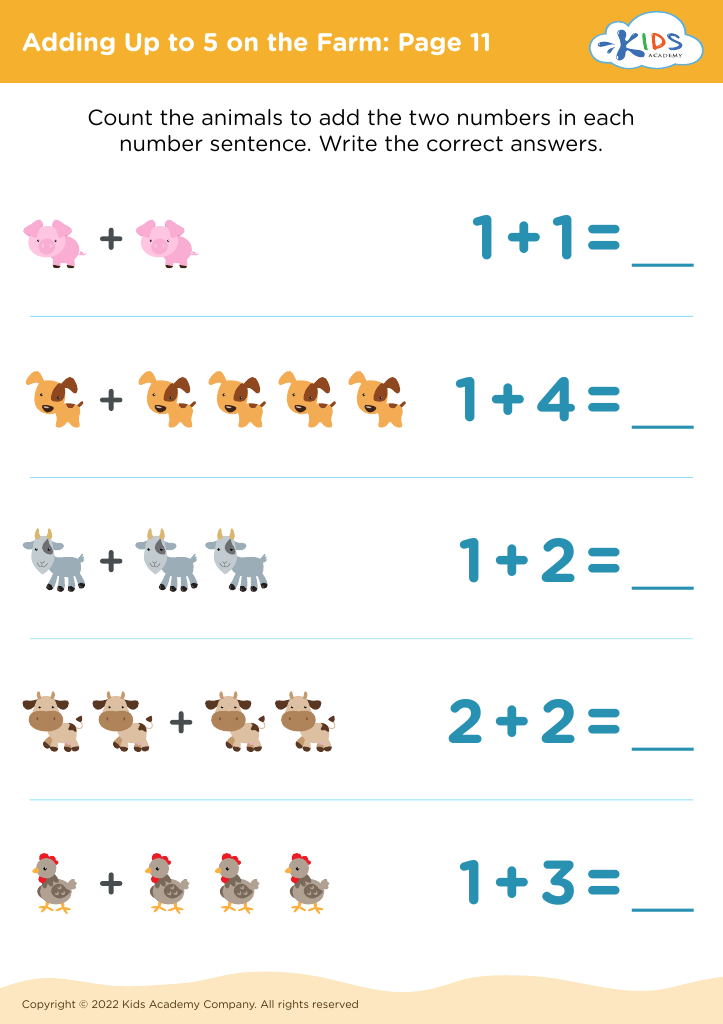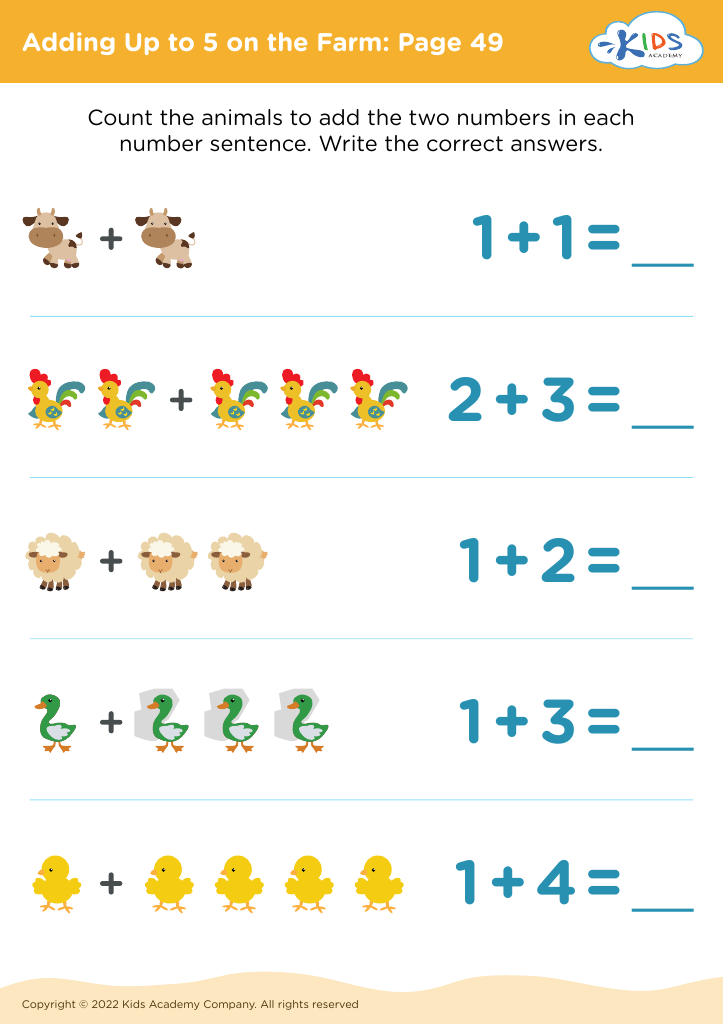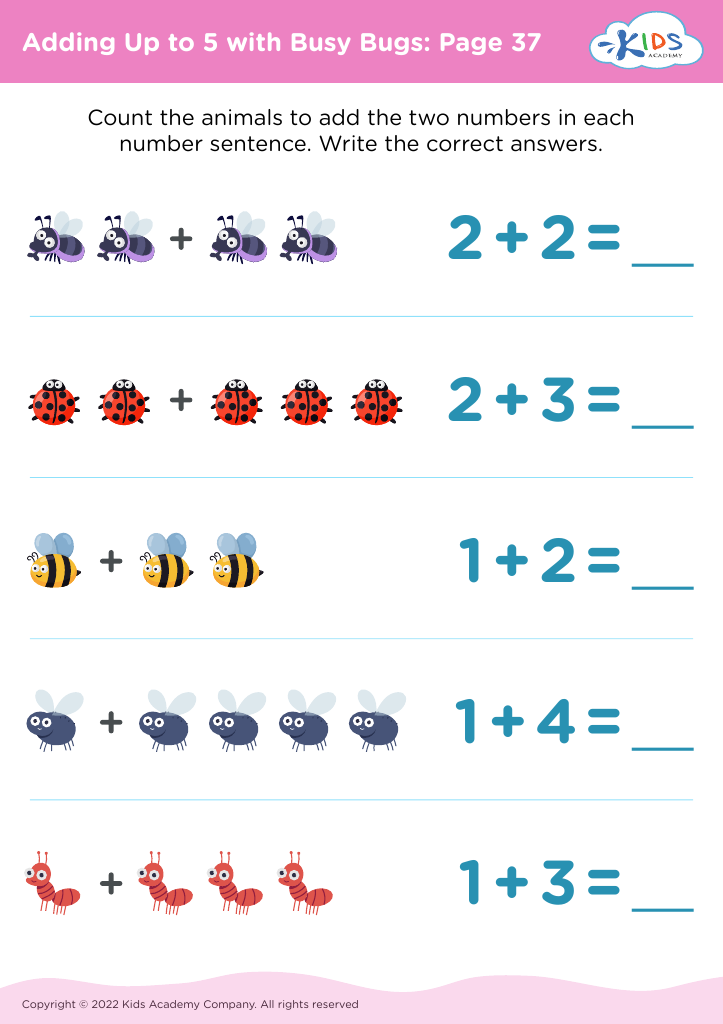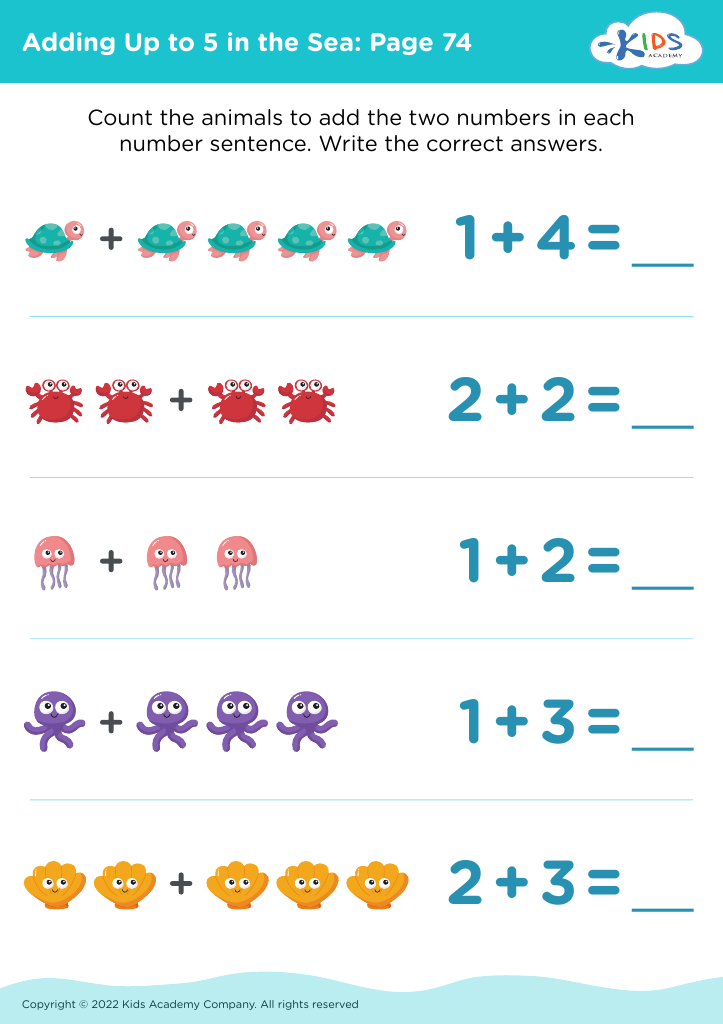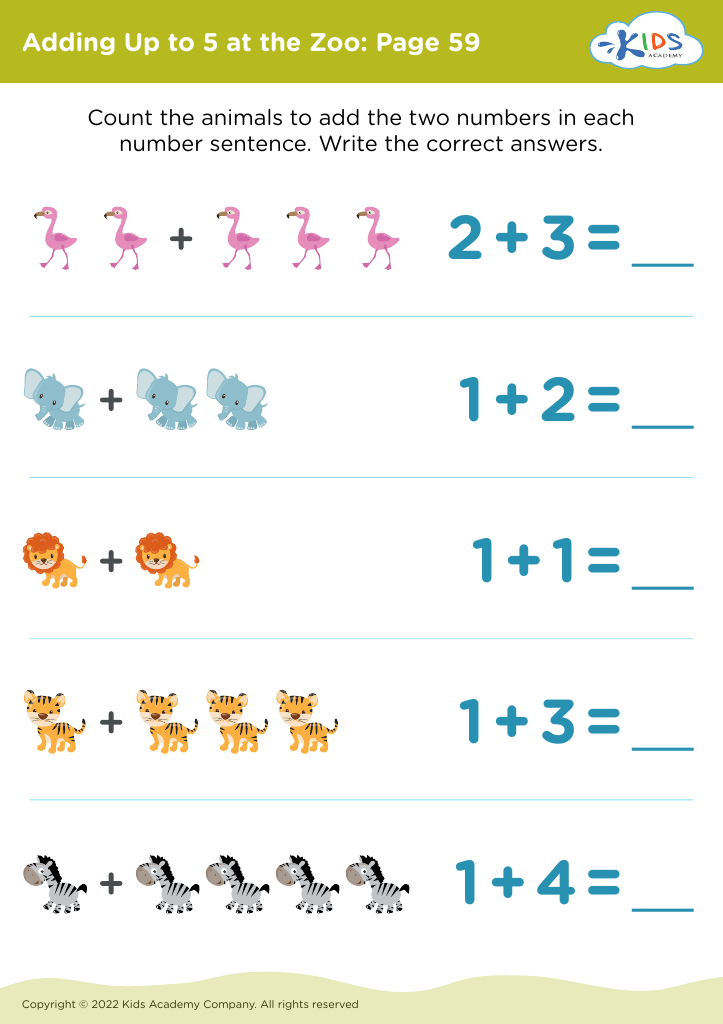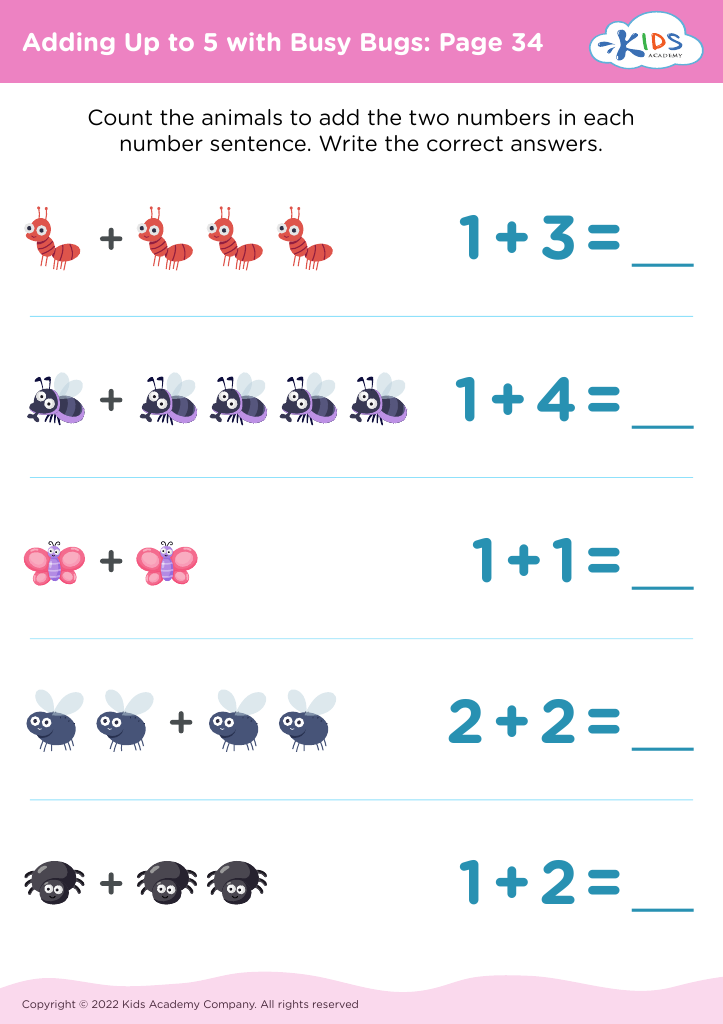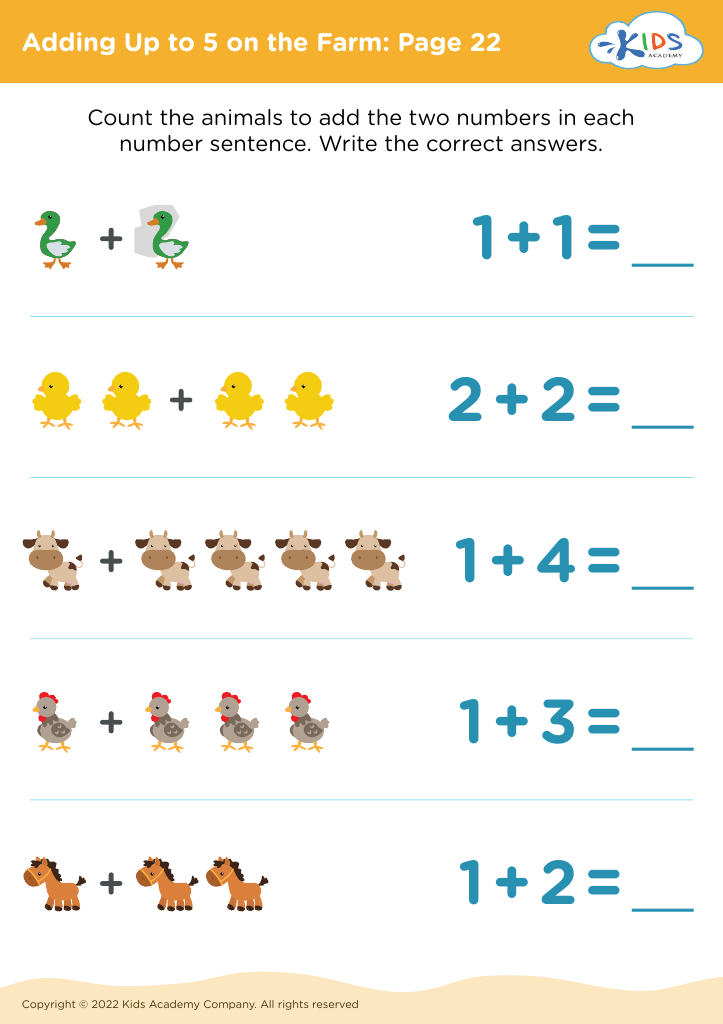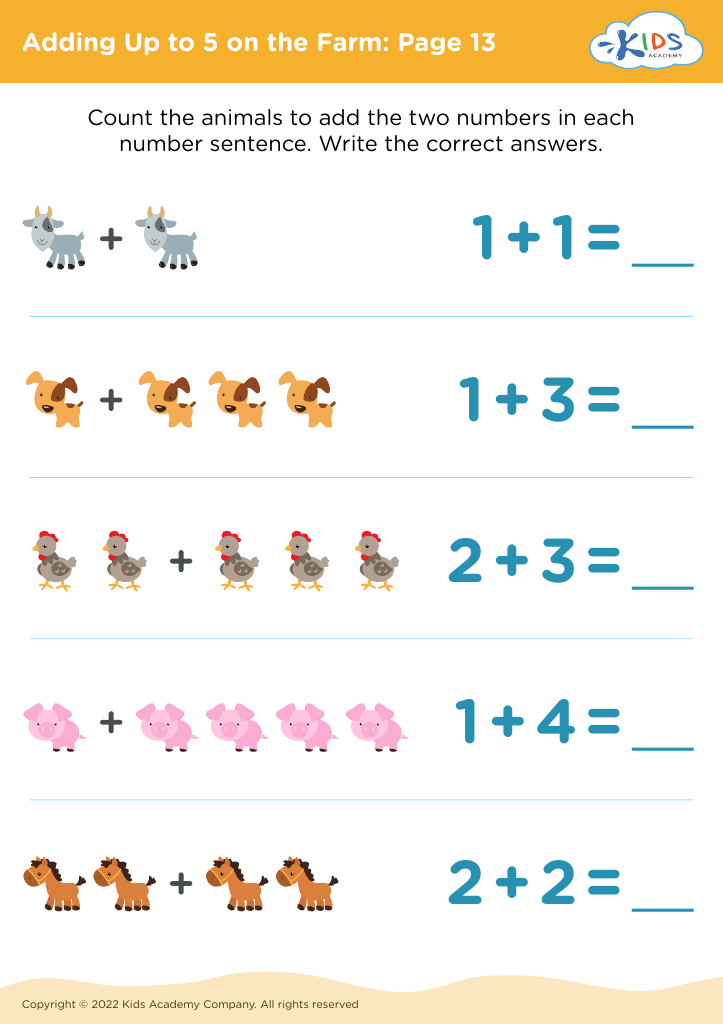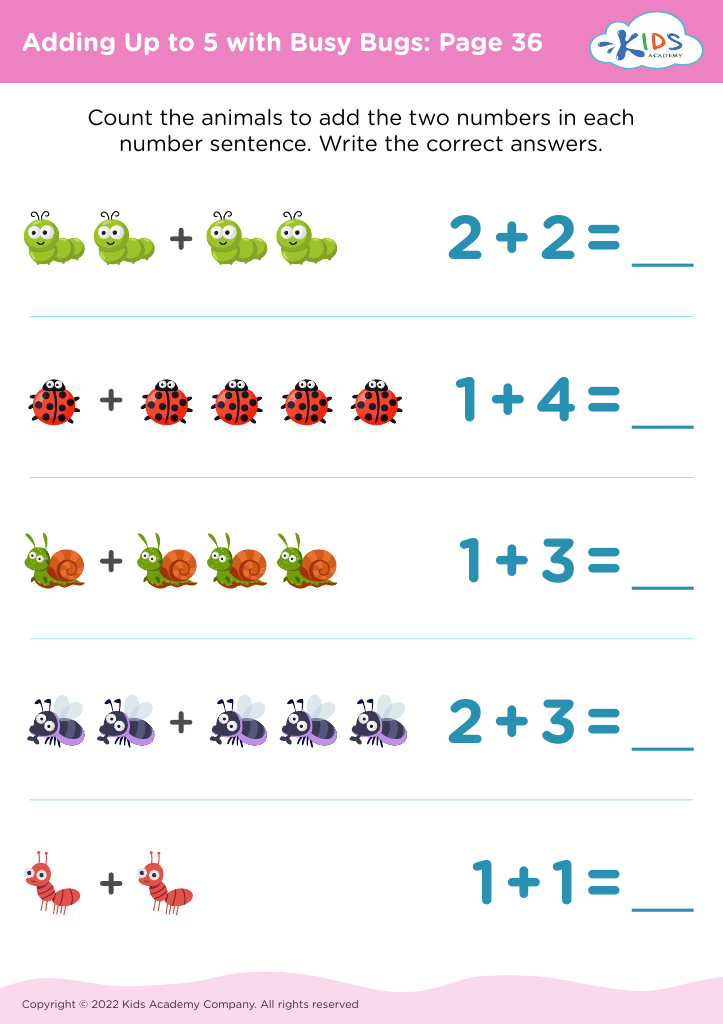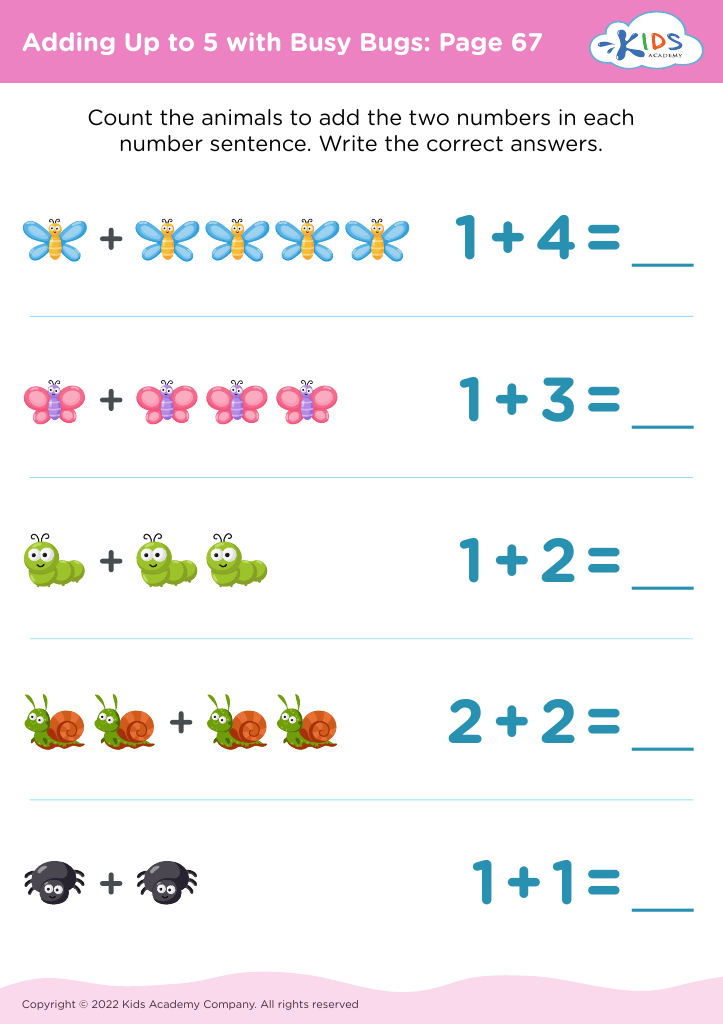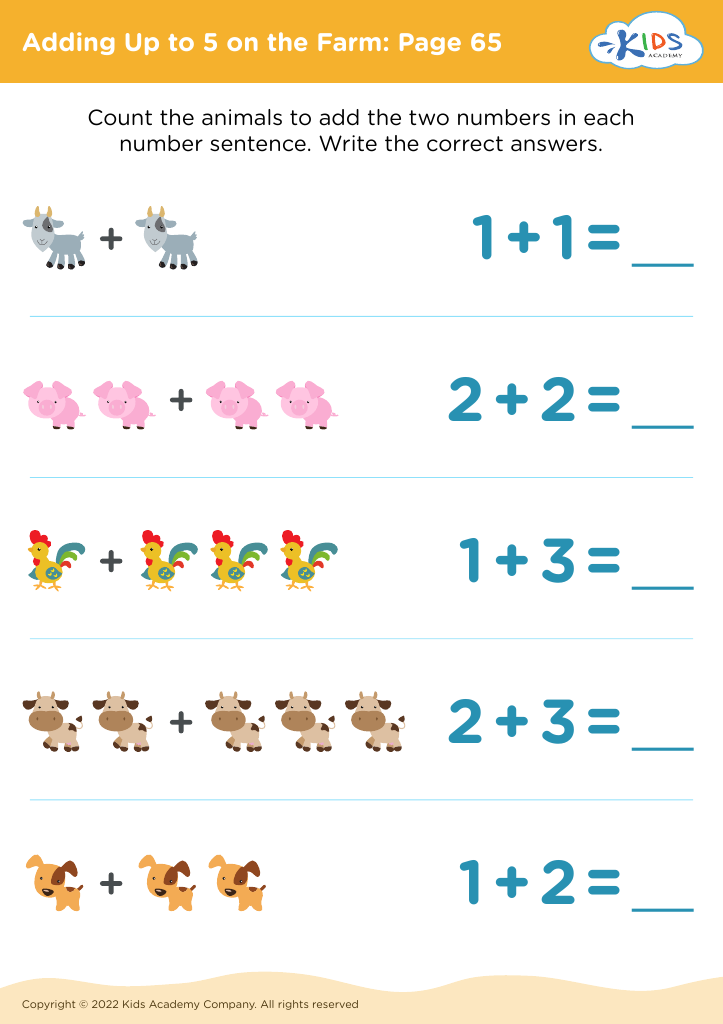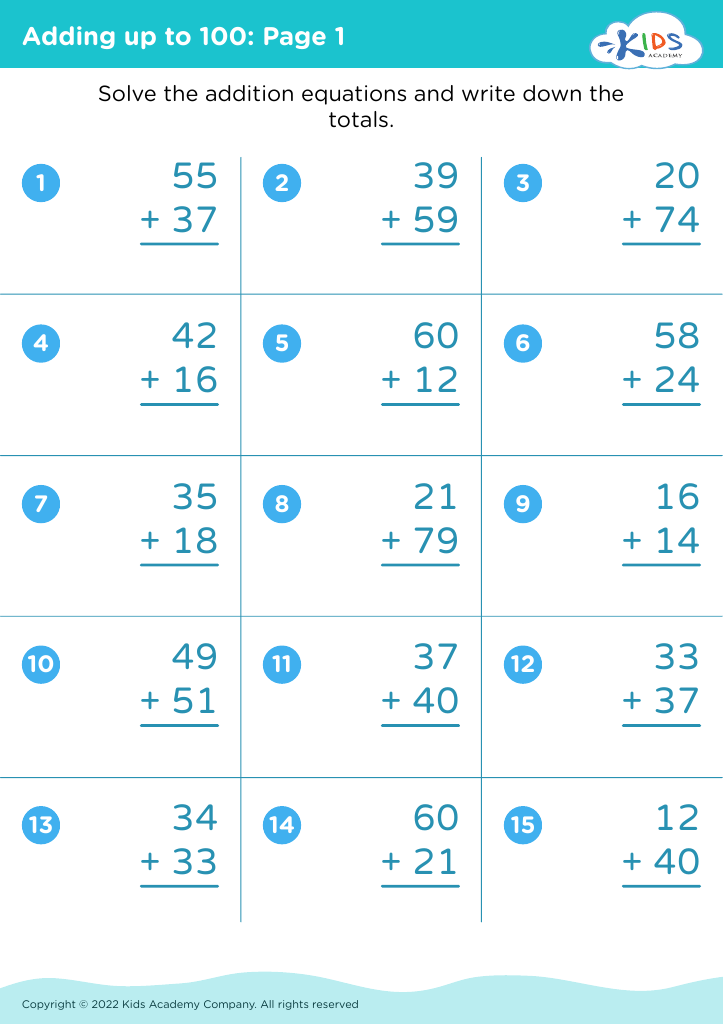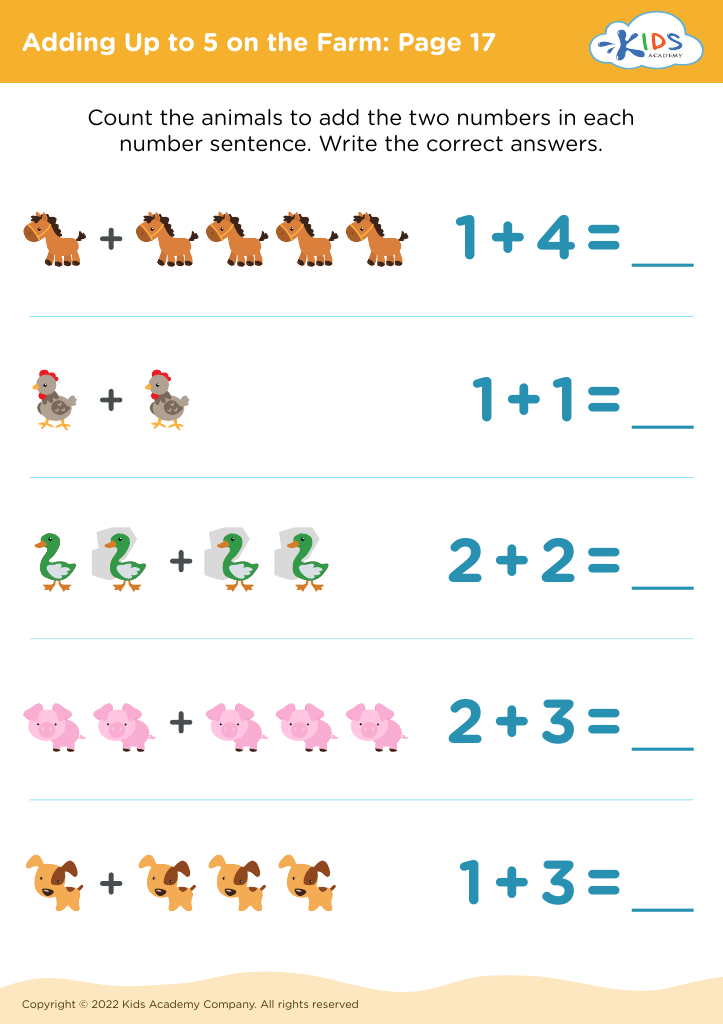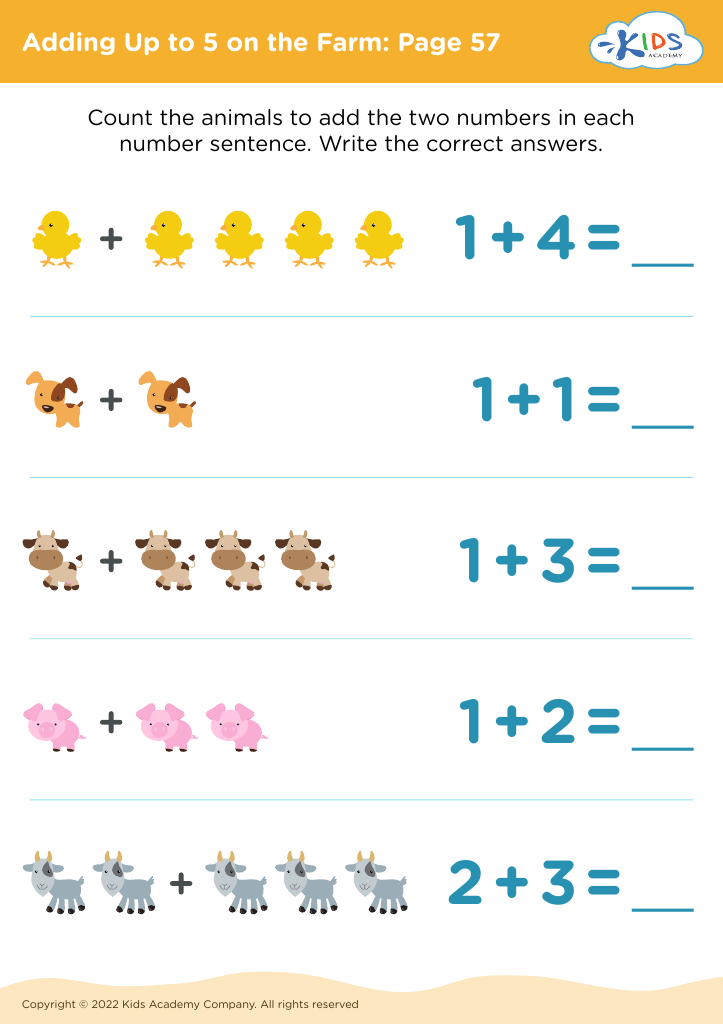Understanding quantity Addition & Subtraction Worksheets for Ages 4-8
27 filtered results
-
From - To
Welcome to our comprehensive resource for "Understanding Quantity Addition & Subtraction Worksheets" designed specifically for children aged 4-8. Our engaging worksheets aim to build a solid foundation in early mathematics, focusing on quantity concepts that are essential for grasping addition and subtraction. Through interactive tasks and colorful visuals, children will develop number recognition and counting skills, making math both fun and accessible. Each worksheet promotes critical thinking and problem-solving abilities, ensuring a well-rounded approach to learning. Encourage your child’s mathematical journey with our thoughtfully crafted materials, setting the stage for future success in math! Explore and download worksheets today!
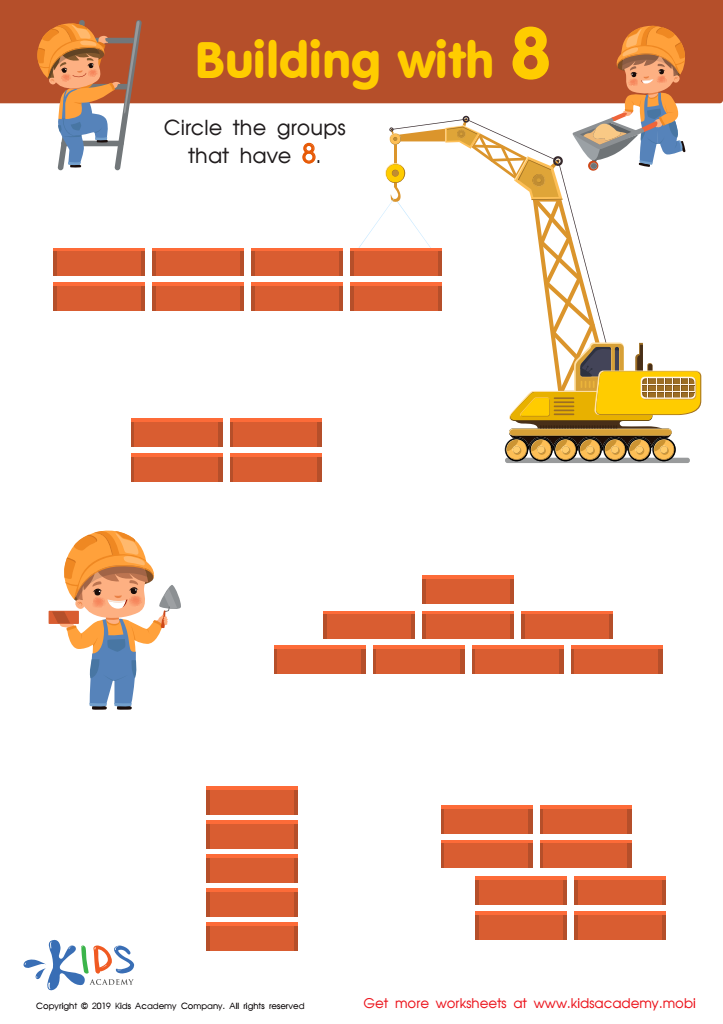

Building with 8 Worksheet


Counting Seedlings Worksheet
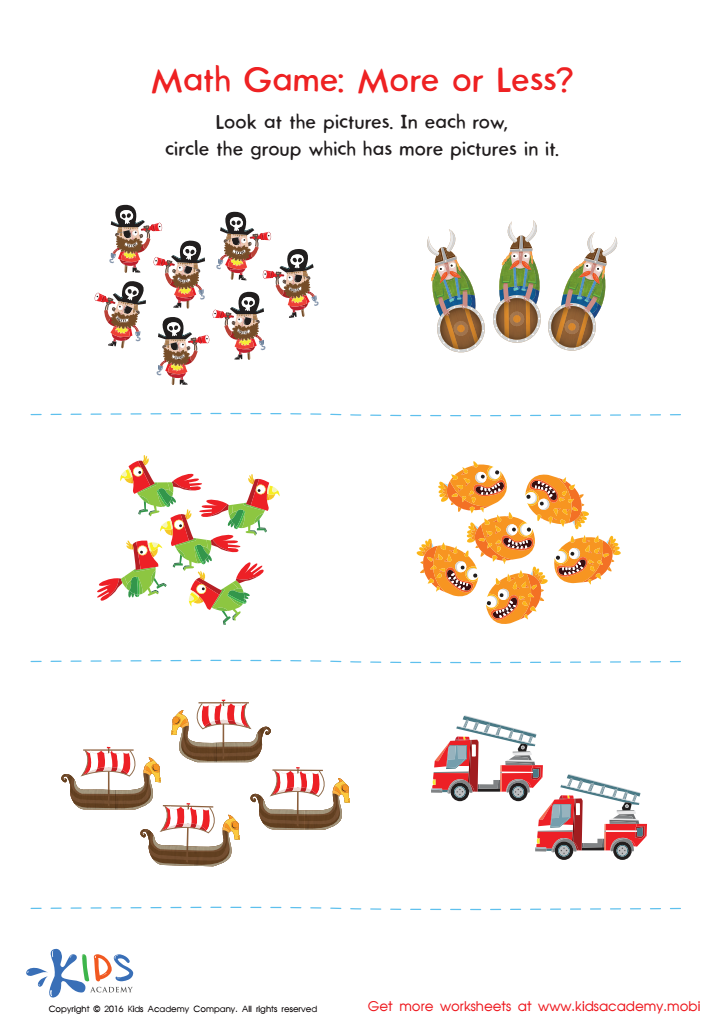

More or Less Worksheet
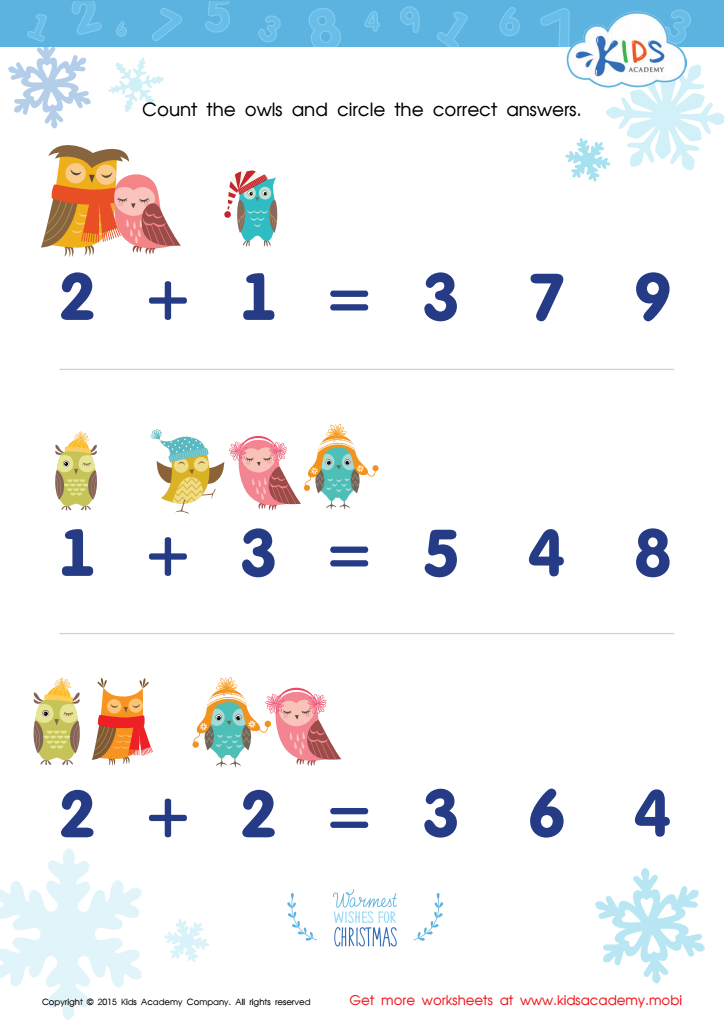

Count Little Owls Worksheet
Understanding quantity, addition, and subtraction is foundational for children aged 4-8, and both parents and teachers play a crucial role in fostering these concepts. At this stage, children are developing essential cognitive skills and learning about numbers as they relate to their everyday lives. Grasping the concepts of quantity encourages logical thinking and helps children make sense of the world around them.
Firstly, a strong foundation in quantity, addition, and subtraction supports later mathematical learning. As children progress, they rely on these basic skills for more complex problem-solving and critical thinking tasks. Building early numeracy skills leads to greater confidence and competence in mathematics, reducing the likelihood of math anxiety as they continue their education.
Moreover, understanding these concepts enhances overall cognitive development. Engaging in activities that involve counting, adding, and subtracting fosters not only mathematical skills but also communication, social interaction, and patience. Parents and teachers can create meaningful learning experiences through games and everyday situations, making math fun and relatable.
Ultimately, nurturing these early math skills empowers children to become independent thinkers and problem-solvers, setting a positive trajectory for their academic success and lifelong learning. Investing time and effort in these foundational concepts has lasting benefits for children’s future.
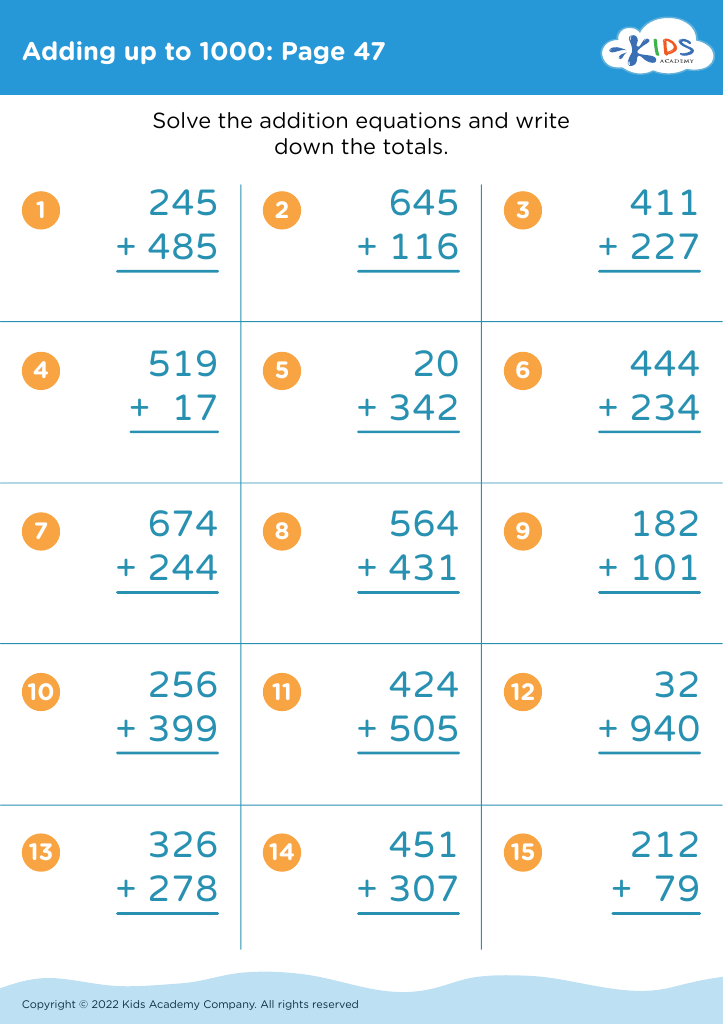
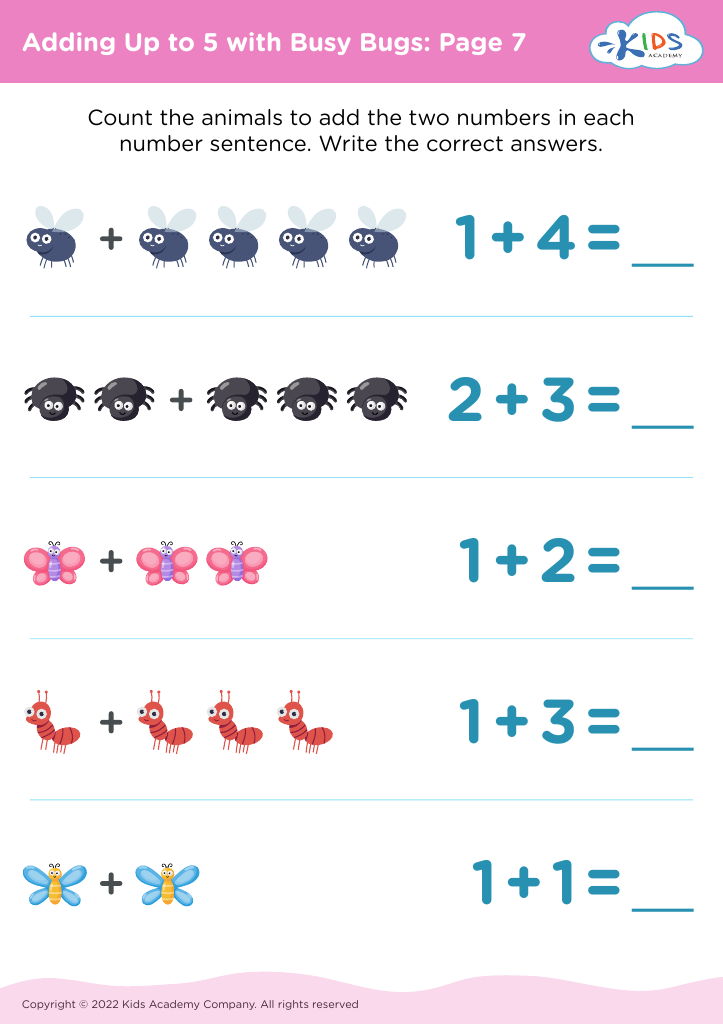
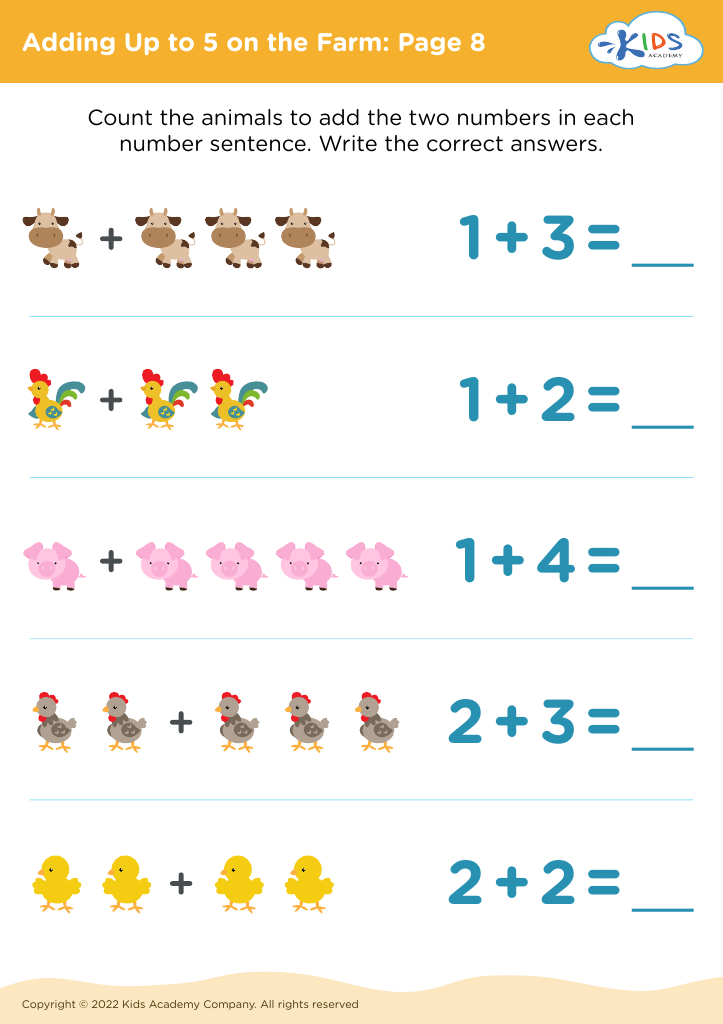
 Assign to My Students
Assign to My Students
